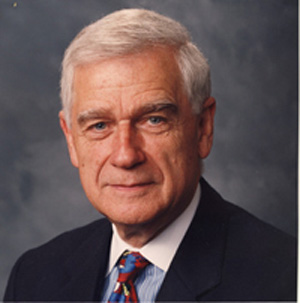military spending

THERE IS A DISTURBING sense of déjà vu in the Philippines. Thirty-seven years after the nonviolent People Power movement ended the brutal and kleptocratic 20-year reign of Ferdinand Marcos Sr., his only son and namesake sits comfortably in the presidential palace. Following in his father’s footsteps, President Ferdinand “Bongbong” Marcos Jr. is once again cozying up to the United States.
In 2012, the Obama administration began to “rebalance” U.S. military and trade agreements in Asia. Since 2014, the U.S. has had access to five military bases in the Philippines and trains Filipino soldiers under the Enhanced Defense Cooperation Agreement (EDCA) — all part of Obama’s “pivot to the Pacific.”
In February this year, Marcos agreed to allow the U.S. military to pre-position troops and weapons at another four bases. This gives the U.S. the largest military footprint it has had in the Philippines in 30 years, when a Filipino-led anti-colonial independence movement led to the removal of all permanent military bases in their country.
In its push to expand EDCA, the Biden administration said it would spend $82 million on projects at the first five bases. In addition, U.S. ambassador MaryKay Carlson announced $100 million in new foreign military financing for the Philippines “to use as it wishes.” The Philippines is already the largest recipient of U.S. military assistance in the region, receiving $1.14 billion in weapons and equipment since 2015. U.S. and Philippines government officials claim that the purpose of this growing U.S. military presence is to help with humanitarian crises and disaster relief, as well as to prepare for a future conflict with China, most likely over Taiwan.

In Kabul, where the Afghan Peace Volunteers have hosted me in their community, the U.S. military maintains a huge blimp equipped with cameras and computers to supply 24-hour surveillance of the city. Remotely piloted drones, operated by Air Force and Air National Guard personnel in U.S. bases, also fly over Afghanistan, feeding U.S. military analysts miles of camera footage every day. Billions of dollars have been invested in a variety of blimps, which various vendors, such as Raytheon, Lockheed Martin, Northrup Grumman, and Aeros have shipped to Afghanistan. All of this surveillance purportedly helps establish “patterns of life” in Afghanistan and bring security to people living here. But this sort of “intelligence” discloses very little about experiences of poverty, chaos, hunger, child labor, homelessness, and unemployment that afflict families across Afghanistan.

Two weeks ago in a room in Kabul, Afghanistan, I joined several dozen people — working seamstresses, some college students, socially engaged teenagers, and a few visiting internationals like myself — to discuss world hunger. Our emphasis was not exclusively their own country’s worsening hunger problems. Rather, tmhe Afghan Peace Volunteers, in whose home we were meeting, draw strength from looking beyond their own very real struggles.
With us was Hakim, a medical doctor who spent six years working as a public health specialist in the central highlands of Afghanistan and, prior to that, among refugees in Quetta, Pakistan. He helped us understand conditions that lead to food shortages and taught us about diseases, such as kwashiorkor and marasmus, which are caused by insufficient protein or general malnutrition.
We looked at U.N. figures about hunger in Afghanistan, which show malnutrition rates rising by 50 percent or more compared with 2012. The malnutrition ward at Helmand Province’s Bost Hospital has been admitting 200 children a month for severe, acute malnutrition — four times more than in January 2012.
A recent New York Times article about the worsening hunger crisis described an encounter with a mother and child in an Afghan hospital: “In another bed is Fatima, less than a year old, who is so severely malnourished that her heart is failing, and the doctors expect that she will soon die unless her father is able to find money to take her to Kabul for surgery. The girl’s face bears a perpetual look of utter terror, and she rarely stops crying.”
Photos of Fatima and other children in the ward accompanied the article. In our room in Kabul, Hakim projected the photos on the wall. They were painful to see and so were the nods of comprehension from Afghans all too familiar with the agonies of poverty in a time of war.

YEAR AFTER YEAR, more than 50 percent of the federal discretionary budget goes to the Pentagon, while only one-third of the non-defense discretionary budget is invested in struggling states and communities—a contrast at the heart of this year’s congressional budget battles. And yet for decades the Pentagon budget has remained sacrosanct while local communities suffer.
From the ground up, activists around the country are fighting back. They are striving to save their communities by calling for cuts in what they perceive as a bloated Pentagon budget—starting in some of the most unlikely places: local city councils.
My organization—the Minnesota Arms Spending Alternatives Project (MN ASAP)—is just one of many groups around the country seeking to shift federal spending priorities from preparing for and waging war to meeting local needs. Through a simple resolution, we build political support by asking churches, organizations, city councils, and state legislators to endorse our initiative to cut Pentagon spending and invest in communities.
In 2011, the Minnesota state government shut down over disputes as to how to address a two-year, $5 billion budget shortfall. Yet Minnesota taxpayers spent nearly $3.5 billion to fund the wars in Iraq and Afghanistan in 2011 alone, bringing total Minnesota taxpayer spending for these wars to $40 billion, according to the National Priorities Project. As in other states, many cities and communities in Minnesota are managing austerity budgets, tightening their belts and laying off police, firefighters, and teachers—all while the Pentagon budget remains unchecked.

According to the Stockholm International Peace Research Institute (SIPRI), the United States currently spends more than $711 billion per year on military expenditures, which is – by far – the most of any country in the world.
In fact, if one were to combine the totals of the next fourteen nations on the list (China, Russia, the United Kingdom, France, Japan, Saudi Arabia, India, Germany, Brazil, India, South Korea, Australia, Canada, and Turkey), their combined amount is similar to the USA. All together, the USA provides about 43 percent of worldwide military costs, and in addition, the USA per capita ($2,240) and percent of Gross Domestic Product (4.8 percent) in relation to military funding is far greater than any other nation in the world.
With these statistics in mind, one is provoked to ponder some important questions. For example, what is revealed to us about the USA – and our world in general – when military expenses constitute such a significant percentage of a government budget?
In specifics, why does the USA spend far more on its military than any other country? In addition, what is revealed to us about the condition of our global village when $1.73 trillion is allocated each year to military funding? As stated by Sojourners CEO Jim Wallis, “A budget is a moral document. It clearly demonstrates the priorities of a family, a church, an organization, or a government. A budget shows what we most care about.”
Each year, the Stockholm International Peace Research Institute (SIPRI) publishes a study on the amount world governments spend on their militaries. The 2011 report was released this week, showing that all countries together spent $1.7 trillion. The Guardian has a helpful country-by-country data page and interactive map. The top 5 in the world last year, totaling $1.05 trillion, were:
U. S. - $711 billion
China - $143 billion
Russia - $72 billion
Britain - $63 billion
France - $62 billion
In contrast, the budget for UN Peacekeeping operations for fiscal year July 2011-30 June 2012 is about $7.84 billion. That’s 0.5 percent of what the world spends on its militaries.
It’s a stark example of the world’s misguided priorities.

A recent Gallup poll shows that 81 percent of Americans want the President to be focused on domestic issues, while 9 percent say they want him to focus on foreign policy issues. Not too surprising ... until you consider that the fastest growing domestic priority is the deficit (69 percent).
The lopsided number between the importance of the deficit and the importance of foreign policy is the first clue that, for most Americans, there’s a disconnect between domestic policy and foreign policy.
Clue number two is a bit more alarming.
The same poll indicates that 54 percent favor a “strong” stance — read: military attack — against Iran versus 39 percent who say that it’s more important to avoid a military conflict with Iran. Put these facts together and a disturbing picture emerges: the less Americans care about foreign policy, the more willing they are to go to war, and the less they’re able to see that war = skyrocketing deficits.
The disconnect couldn’t come at a worse time.

If the GOP primaries were like Old Country Buffet, I’d be happy.
Think about it. There wouldn’t be so much money involved and we could pick only the stuff we liked and ignore the rest.
And of course, everyone knows the basic rules of smorgasbord grazing, such as you can’t get decent sushi in the Midwest or proper social conservatives from Massachusetts.

President Barack Obama made an unusual appearance in the Pentagon briefing room Thursday with Secretary of Defense Leon Panetta to release a new Defense Strategic Guidance, essentially the strategic plan for the U.S. military. Recognizing the end of the war in Iraq and the pressure of deficit-driven budget cuts, the plan outlines a smaller and more focused military.
Meanwhile, December unemployment numbers out this morning, and show a drop to 8.5 percent. That’s obviously good news, but don’t get overly excited. The unemployment rate for minorities was virtually unchanged – 15.8 percent of African-Americans and 11 percent of Hispanics remain unemployed. And the broader measure, including what are called “discouraged workers” – people who want to work but have stopped looking and those working part time because they can’t find a full time job – is 15.2 percent.http://www.twitter.com/dshankdc

On Saturday, November 12, at 8 p.m. ET, CBS News and National Journal will present a nationally broadcast debate focused on national security issues.
There are several ways for you to participate both before and during the debate.
Our friends at WAND (Women's Action for New Directions) have created a primer about how you can submit questions to the candidates before the debate.
Let your voice be heard!
Romney's Mormonism To Be A Bigger Issue In The General Election, Say Evangelicals (includes comments from Jim Wallis; Oakland Braces For A 'General Strike'; Military Blew $1 Trillion On Weapons Since 9/11; American Voters Like Obama Better This Week, Quinnipiac University National Poll Finds; Cain And Gingrich Up As Romney Stalls And Perry Fades; Obama: I'll Make The Call On Keystone XL Project; Democrats Embrace Populism; Huntsman Takes On Big Oil
"For every 5 percent drop in income growth in a developing country, the likelihood of violent conflict or war within the next year increases by 10 percent. Poverty-focused development assistance supports economic growth, protects vulnerable people, and helps curtail desperation that may lead to violence" (Bread for the World).
On Wednesday, the Senate will vote on the budget for foreign aid. Should the proposed cuts occur, it would prove disastrous for the rest of the world, potentially leaving millions without food, education, and livelihood.
Please, contact your Senators today and tell them to continue funding poverty-focused development assistance.
 Mark O. Hatfield's political witness shaped a whole generation of students, teachers, pastors, and social activists in the evangelical community and beyond. The voice of Christians today who plead for social justice and peaceful alternatives to war would not have emerged with its strength and clarity in the 1970s without his leadership. His death underscores the vacuum of such spiritually rooted voices uncompromising in their commitments to peace and justice within the cacophony political rhetoric today.
Mark O. Hatfield's political witness shaped a whole generation of students, teachers, pastors, and social activists in the evangelical community and beyond. The voice of Christians today who plead for social justice and peaceful alternatives to war would not have emerged with its strength and clarity in the 1970s without his leadership. His death underscores the vacuum of such spiritually rooted voices uncompromising in their commitments to peace and justice within the cacophony political rhetoric today.
One of my life's greatest privileges and joys was to work as an assistant to Senator Mark O. Hatfield for nearly a decade, from 1968 to 1977. I saw first-hand what courageous leadership, combined with unswerving compassion and civility, looked like within the political life of that turbulent and formative era. Those experiences are shared in my book, Unexpected Destinations (Eerdmans).
Tough choices are now upon us -- but they must be smart, courageous, and compassionate.

Ben & Jerry's co-founder Ben Cohen talks with Jim Wallis about ice cream, Oreos -- and how the bloated military budget is destroying our economy and making us all less secure.
Here's a little round up of links from around the Web you may have missed this week:
- One in four children in the United States are in poverty.
- Ben&Jerry's Ben Cohen talks to Sojourners about ice cream, oreos, and military spending.
- Female college graduates are getting paid less than their male peers.
- Is Capitalism's popularity waning?
- If your house was burning, what would you take with you? (My house almost burned down once. I had time to grab my computer, family photos, and a signed copy of Deadeye Dick.)
- Any winos out there?
- Have you ever been to Paris?
- I remain obsessed with tiny living. (Amazing!)
- Cathleen Falsani on the end of the world.
I had the opportunity to interview Ben and Jerry's co-founder Ben Cohen about ice cream, Oreos -- and how the bloated military budget is destroying our economy and making us all less secure.
